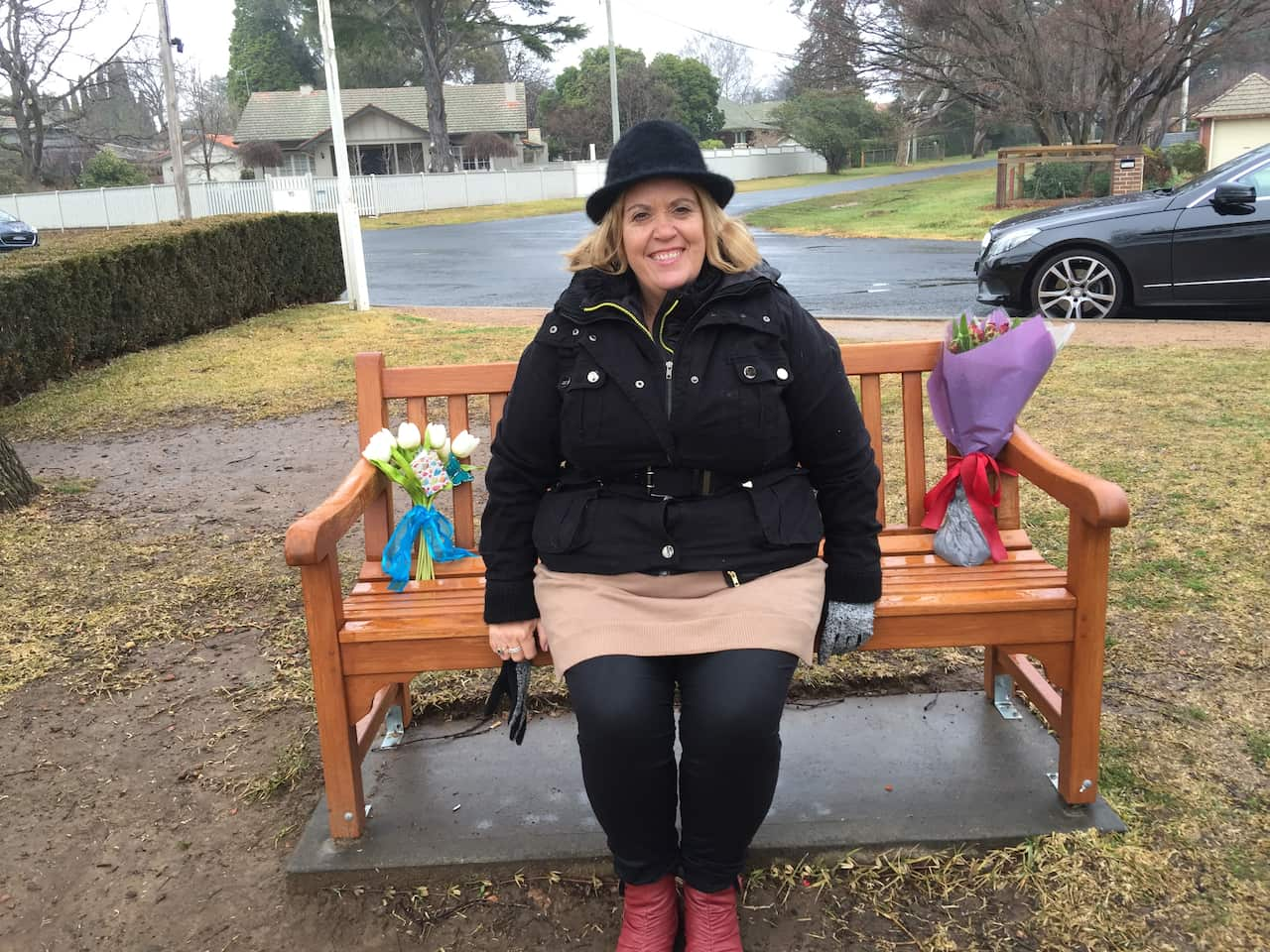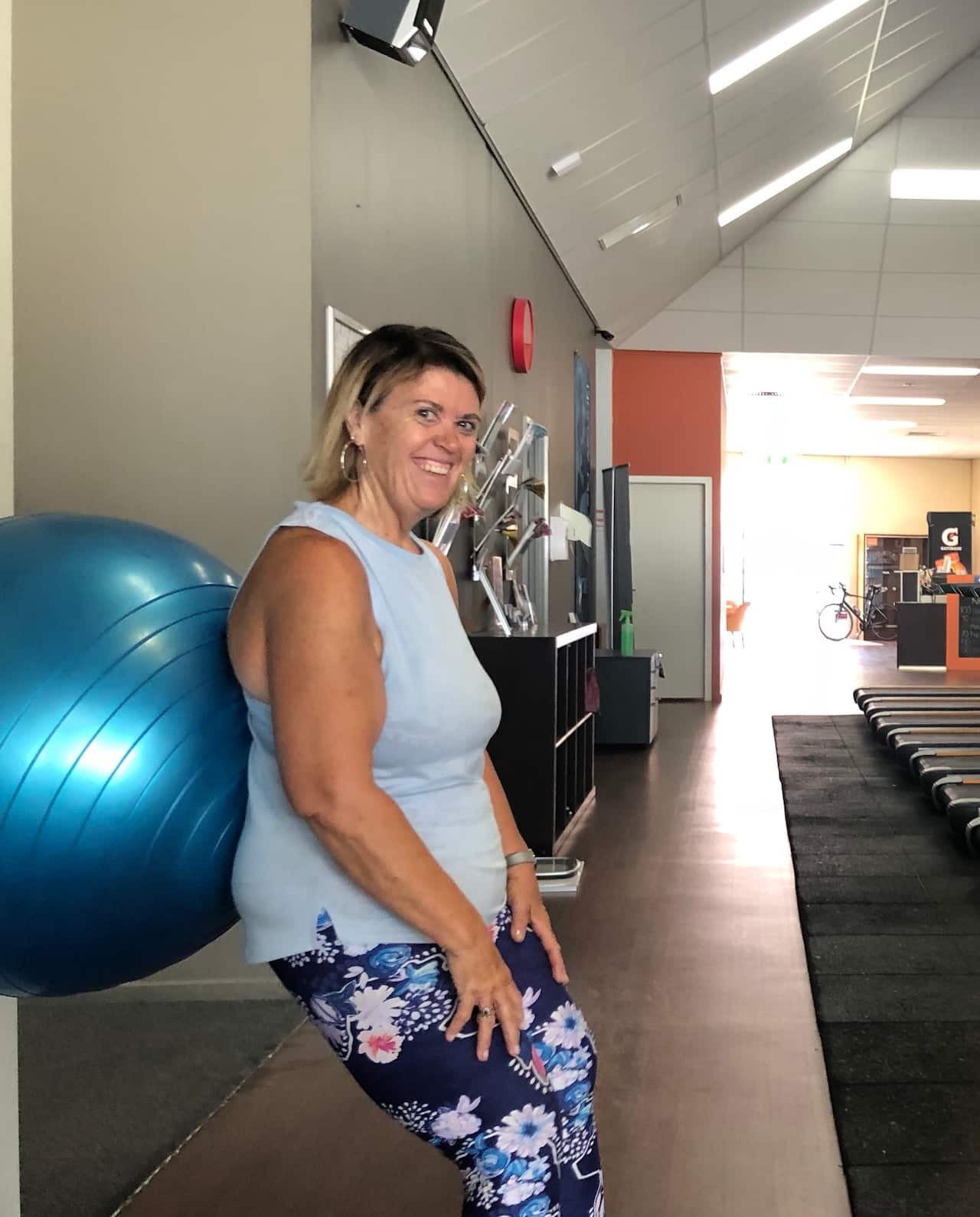Preview above: How do we lose weight and keep it off? Keeping Weight Off, full ep. on SBS On Demand.
As a young woman I never had a weight problem. I was young, fit and very active. I rode a horse, played netball, climbed mountains and enjoyed being outdoors. I was tall and had long legs and loved my body.
My life changed when I got married at 21 and had two children quite soon after. I worked hard during my pregnancies to not put on too much weight, but as a young Mum there was never enough time for me. I realised fairly quickly that I had married someone who had a major addiction problem and over time I developed my own behaviours to cope with that. It wasn’t drugs, alcohol or gambling for me, it was food.
I became depressed and food became my solace. As things deteriorated in my marriage, so too did my body. When I ate, I had an immediate release of stress, and deep sense of comfort.
In my thirties I finally had enough and through grit and hard work, I changed how I ate. Over a year I lost almost 50 kilos, and felt fantastic. I was able to keep up with my children and enjoy life like I was meant to.

But a few years later, there I was again, over my ideal weight. I was devastated. I hated looking at myself in the mirror, I hated how I felt, I hated myself. One day I fell over my grandson and I literally could not get up off the floor. It was so humiliating. I knew that I could not go on like this. I didn’t want my addiction to food to control me anymore.
The reality is that no one gets up one day and says I will overeat and make myself look gross. No one in their right mind would do that. What we do is develop habits using food in the wrong way to make us feel better. Only in the long term, it doesn’t make us feel better. Our hearts struggle to beat, our joints start to give up, our hands and feet hurt, our backs give out. We can dress ourselves up and make ourselves look good but inside, our bodies are struggling.
I decided to investigate gastric sleeve surgery. I went along to an information session and was told while it wasn’t a magic pill, it would change my life. I had one very generic pre-appointment with a nutritionist, an appointment with the surgeon to discuss the practicalities and an appointment with a nurse. That was it and I was in! No counselling, no requirement to see a psychologist, no other appointments.

Over the next two years I lost almost 50 kilos and felt fantastic. I had my energy back, and I looked and felt good. I felt such relief that I thought my nightmare was over. But there were side effects. Your body finds it hard to maintain nutrition, so I lost a lot of my hair, developed brittle nails, had low iron, low Vitamin B and low Vitamin D, I also developed digestive issues.
Everything changed three years after the surgery. I noticed that I could suddenly eat more food, and I started to feel hungry all the time. I was frustrated, as no one told me this would happen. I was also frightened that the weight loss roller coaster was about to start again. What I came to understand from my own research, is that the hunger hormone Ghrelin disappears after surgery, but comes back after a honeymoon period of a couple of years. I learnt that the stomach starts to stretch, and over the next year I put on 15 kilos.
Now I find my body wants to fight me to lose the weight. I have to work twice as hard, watch what I eat every day and somehow find the strength to do this again.
I think gastric sleeve surgery sets you up for short term success and long term failure. It is very expensive - with health cover most people are about $10,000 out of pocket and without it, it’s over $20,000. We need to set up people to succeed. If this surgery is to be used as a tool to help people lose weight and keep it off long term, then we need to provide long term access to counselling, nutritionists, PTs, gyms and exercise physiologists as part of the package that people sign up to.
I believe 85 per cent of weight loss is in your head. It’s not a simple calorie deficit equation, but it is how we relate to food emotionally. When times are hard and I want to cry, that little voice in my head says ‘have a biscuit…’
Would I have been better off spending thousands of dollars on counselling instead of surgery? I think so.
Insight is Australia's leading forum for debate and powerful first-person stories offering a unique perspective on the way we live. Read more about Insight
Have a story or comment? Contact Us


